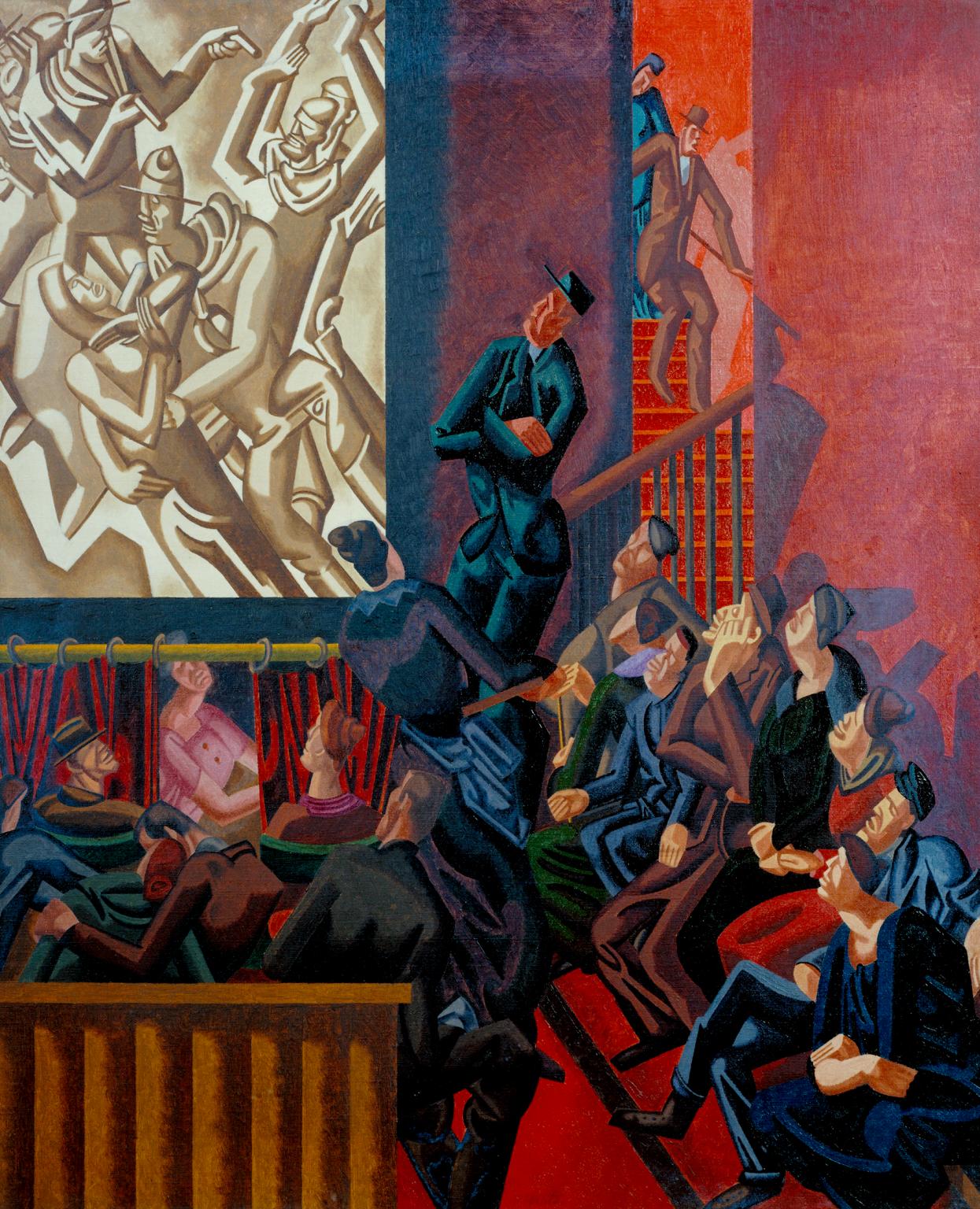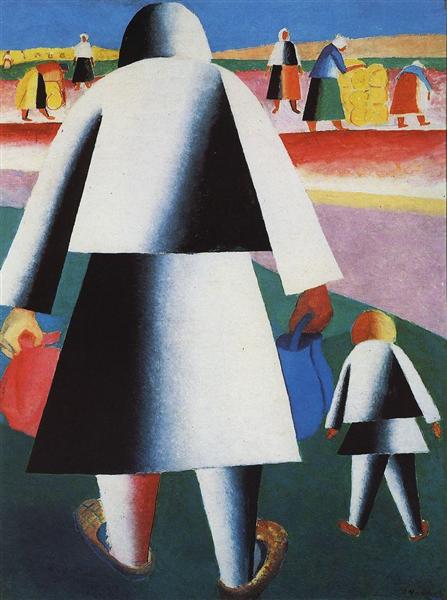Posts on: love

The reader became the book; and summer night
Was like the conscious being of the book.—Wallace Stevens
I hold my hands up: in last year’s roundup, readers may have noticed a glaring contradiction. Despite declaring from the outset that the works listed had “nothing to do with me”, despite rallying against “individual ego-fictions” and exalting “impersonal threads of connection”, in many of the sections I ended up talking about, well, myself. I told anecdotes, confessed feelings, gave opinions; all the telltale signs of the subjective. How was this possible? How could I so squarely contradict myself?
Now I put my hands down, in defence: I do not think this was a contradiction. In fact, no: there was a contradiction, but it was precisely the contradiction that defines books’ existence as such. For as much as they are undeniably objects with a particular form and content, the fact remains that much of the joy we get from reading books is that what we discover in them is ourselves, from a new vantage point. Works written decades ago genuinely seem to capture “our” unique essence, and allow it to be socially expressed. As such, books can neither be reduced to mere subjective feeling nor a fixed objective form, but rather must be thought as a mediation between the two: they allow the subjective to be expressed objectively, and the objective to be brought home to the subject. As Adorno stresses throughout Aesthetic Theory, art is simultaneously an object that is merely made like any other, as well as more than a made object; and it is this contradictory state that drives art’s self-development.
If I fell into “subjective” mode when discussing books last year, then, ironically it was because I was simply trying to be faithful to them as objects. I have been keen to maintain this dialectic in this year’s roundup; I have, however structured it slightly differently. Whereas last year I generally grouped texts according to genre, canon or tradition (for example “Psychoanalysis” or “Music and Post-Punk”) this year I have largely organised the works I have read this year through a set number of concepts1. This is to bypass a problem that can occur when grouping by canon or tradition, which is the deadening of particular works and their relegation to a familiar “home”. When too cosily seated in the canon, works ossify under an established set of signifiers. Works in this situation can only be approached from the outside: one must brush aside all the thick brambles of tradition, commentary and secondary literature before one can approach the work in-itself. My method here, however, has been to approach the books I read this year from within, starting from my experience reading them and developing concepts based on this. The benefits of this method are manifold: not only does one more faithfully communicate the “spirit” of particular works, but one also frees them from their established homes and puts them in dialogue with other texts. One thus sees works not as fixed points in a hierarchy of tradition, but as an intersecting mesh of lateral connections; one sees the works as alive.
We should therefore be very sceptical of the word “about”: the works listed here are not “about” these particular concepts, nor is what I have written “about” said works. Writing “about” things is generally very tedious. Instead, I have attempted this year to open myself up to the “inner life” of what I have read, and sought to only develop concepts and theories that remain immediately in contact with this pre-conceptual interior zone. The goal is a kind of radical immanence: the reaching of a level where it is not that I am writing “about” works, but rather that what I write is the works, which then are the concept. On this level, concepts harmonise with the work’s “inner life”; indeed, they allow it to blossom, to properly externalise itself. A process of blossoming: this is what the concept is, or should be.
There are certain thinkers, usually comfy academic philosophers, that scorn this approach to theory and criticism, an approach which Mark Fisher practiced most acutely. They class it as too “subjective”, too contrarian, too distant from any established canon to have any relevance. Let these thinkers have their undead labels which they tragically mistake for reality. They are oblivious to what they are missing: the brute, unnameable fact of life.
-
Editorial notes: the below is a round-up of the many things I read and watched this year, including a mixture of books, poetry collections, short stories, essays, blog posts, newsletter entries, documentaries and films. A handful of things have been left out, some because I was largely uninspired by the work, others because, despite their quality, I could not honestly categorise. ↩

Part III: Proletarian Love
Truth is not an unveiling which destroys the secret, but the revelation which does it justice.
—Walter Benjamin
At the risk of seeming ridiculous, let me say that the true revolutionary is guided by a great feeling of love. It is impossible to think of a genuine revolutionary lacking this quality.
—Che Guevara
If the entire problem of the Paradox was precisely that of fetishism, of romanticising things, then we can see immediately that this whole time, without realising it, we have been meditating on one central issue: love. If there is one thing that the Paradox demands of us, it is to practice a true and universal love; indeed, it is precisely this kind of love that proletarian politics aspires to.
As the Che quote above acknowledges, this does, initially, sound vapid, meaningless, and trite. However, in that any meaningful social revolution presupposes some kind of egalitarian fraternity of people who come together under the banner of a shared Cause, it is impossible to deny that the revolution implies revolutionary love, or at the very least some sort of revolutionary belonging. Let us call this revolutionary love “proletarian love”, and the subject that practices this love the proletarian or the comrade. In light of the discussions of the Paradox in the previous two parts, here we round off this essay by thinking through the following question: what is this proletarian love? Which perhaps is equivalent to asking that one vexed, eternal question: what is true love?
*
I don’t pretend to have any kind of definitive answer to this question, and I am not about to present a “Theory of True Proletarian Love” (which sounds like just about the least loving thing I could do right now). Nonetheless, I do think it’s possible to creep closer to some kind of answer by framing the question negatively, and asking instead: what is proletarian love not?
First off, proletarian love is not a love “for” the working class. This is simply the problem of fetishism all over again, the reduction of the working class to a particular series of fixed attributes and symbols. Instead, our aim is a kind of love which loves the working class insofar as they are stand-ins for all of humanity; in other words, a universal love. In Part II, we described this universality as concerned with a kind of “brush with the void”: the universal expressed itself through the working class via their encounter with the unnameable void at the heart of everything, for example when they attempted to start a community project solely through the resources they had available to them, and without any funding, recognition or validation from the State. Although the working class could be said to have a “privileged” relation to this void (also known as “epistemic privilege” by standpoint theorists and Mark Fisher), in principle anyone can—and indeed more often than not do at some point—have this kind of “brush with the void”. It is in regards to this encounter with the negative that our proletarian love is universal, as will be explored more shortly.
At the same time, however, it is important to clarify that this proletarian love is not universal in the sense that, say, hippies understand it, as a kind of uniform declaration of “peace and love”, or a chilled-out pacifism. This makes a mistake that we also identified in the previous part: the mistaking of universality for identity or uniformity. To practice universal love is not to show the same undifferentiated love to every particular thing we encounter. This, clearly, is not “love” in any meaningful sense: if you claim to equally love both the slave and the slave-trader who whips them, each of them accordingly know your love to be absolutely meaningless. It seems inescapable, then, but to argue that all love is inherently engaged in the activity of taking sides: love fixates on singular things and elevates them above the rest; it orders and prioritises.
And so we find ourselves at an impasse: our universal proletarian love must on the one hand a) aspire to universality, and yet on the other hand also be b) ruthlessly partisan; it must seek a grace and forgiveness that can extend to all, and serve the interests of the whole of humanity, and yet at the same time vehemently draw its dividing lines, say “no” to the bourgeois powers that be, and stand up against oppression and exploitation. So proletarian love in some way loves all humanity; but in another way, it detests the bourgeoisie, and it spits on the careerist demagogues that so frequently lead the people astray. Is this not a contradiction? How can one claim to love all humanity and yet basically hate one small, albeit powerful, section of it? Does this not defeat our entire project?
No, and for this reason: the particular and the universal are not separate “things”, categories or labels but rather, by necessity, dialectically related. In other words we reach the universal through the particular, and not in spite of it. Indeed any concept of “universal” without the corresponding concept of “particular” is quite literally empty, something akin to the hippie’s “universal love” referred to above.
So to reiterate: proletarian love is something that strives to speak for (all) the People—in other words, the Common Folk—but does so through engaging in divisive, antagonistic political struggle. It is a kind of commitment to the Common Folk, the “true”, anonymous People lurking underneath the false images of the People that claim to be it (national flags, emblems, monarchs, and so on).
Let’s try and make this a bit more concrete; how would one feasibly practice proletarian love? How does one reach the universal “through” the particular? Our starting point is to remember that though we seek to act as (=on behalf of) the People, we never encounter people as the People, that anonymous, faceless public: we only ever interact with the particular people that we come across in our particular lives. So we begin with those often mundane, everyday moments that we are all so familiar with: a friend is complaining about their relationship, a colleague is moaning about their work, a family member is struggling to get the healthcare they need, and so on. Now, suppose we take the second example here: you are on your lunch break at work and your colleague, who you are quite friendly with, is having difficulties with their manager. Out of a fraternal love, you resolve to help them; after all, it could have been you with the difficulties, and in that situation the friend/colleague would have done the same for you. The colleague figures it’s just a small personal dispute, and they need your help preparing for a meeting with the manager in private, which you oblige to. However, after a little thought, it becomes clear that this situation could not just have affected you two, but almost the entire workplace, and indeed almost the entirety of the public, in principle. This changes things: it means helping your colleague prepare for a backroom meeting with their manager where they can privately resolve their differences no longer feels like a fair path to take. Instead, you and the colleague resolve to, rather than treat this issue as a private one between two individuals, open the issue up: to the other workers, to the public — in other words, to the Common Folk. You call a union meeting and get the workers talking to one another; you write up a press release about your actions and send it to the local newspaper. In short, you transform a private issue into a political issue; you turn a “for us” into a “for all”; you elevate fraternal love (the love between friends) into proletarian love (the anonymous love that exists between the People, as strangers, akin to “the love of one’s neighbour” in the Christian tradition).
It is this act of opening up that is the act of proletarian love par excellence, because it is precisely this that allows a particular struggle to connect with a whole host of others and begin to metonymically “stand in” for them all, and therefore begin to truly express the universal (= the People = the Common Folk). Had the friend kept their workplace complaint to themselves, this universality that the particular issue was “nested” within would never have been unravelled, and we would never had had the People chanting on the streets; we would never even believe such a thing possible.
Now, this feeling (or lack thereof) of possibility is precisely why we characterise this entire process as “love”: because it involves faith, commitment. For as any activist knows, the People do not exist in actuality yet: they have to be built. (This is precisely what distinguishes the Left from the Right: the Right assumes the People always-already exist in an identifiable form.) The People, the Common Folk, are an abstract, ideal, a priori and (Zizek would say) “impossible-real” universality that has no actual existence right now, in that we do not live in a wonderful fraternity of equals who treat each other with total selflessness and kindness. This, however, does not stop the concept from being useful, and indeed necessary for political action1. It is, after all, literally impossible to think any kind of genuine politics without some kind of a priori notion of the People baked in from the start: all political struggle is grounded on the assumption that, at some level, the People genuinely are all equal, and all equally free, and that this a priori state has been corrupted by some injustice that has introduced inequality and hierarchy into the system. Of course, we know that this is basically a fiction, a mythology, but at the same time we cannot do without it: the alternative is to assume that instead of being fundamentally equal, humanity is fundamentally unequal, and this, naturally, simply ends up in strictly hierarchical, caste-like societies which could be said to lack any meaningful definition of “politics”, because everyone simply is forced to stay in their place rather than make claims on some shared resource. Instead of this arrangement, the proletarian dares to make that leap of faith that characterises all love2: they dare to act as if that a priori ideal—the People, the Common Folk—already exists, they dare to speak to, and as, the People, even though this subject does not exist yet, and is always, perennially, to-come. And finally, crucially, it is ironically only by acting as if this object really exists that we eventually actually make it exist. It is only by daring to believe that “the people will be free” that we eventually assemble the chanting mass on the streets that seems to genuinely sound the birth-pangs of a genuinely free People. The process here is always the same: the leap of faith retroactively constructs the ground it leaped from; the proposition back-engineers its own proof. (In CCRU-inspired theory circles, this process of fictions becoming real is known as “hyperstition”. In common parlance? “Fake it ‘til you make it”.)
-
In the same way, the circle, as a purely abstract mathematical object, is not found as such in Nature; we find many patterns and objects that tend towards perfect circularity (e.g. a soap bubble), but if we were to examine these closely enough, they would not of course be perfectly circular. This does not, however, stop the purely abstract concept of a circle being useful or meaningful to us; indeed, it is only by the a priori concept of the circle that we are able to intuit the natural circular object (e.g. soap bubble) at all. The same is true of any a priori (and thereby universal) concept of “the People” or “the Common Folk”. ↩
-
This is even the case with romantic love: we dare to make that anxiety-inducing first move and ask the other on a date, as if we had known them forever, even though we have only just met them and have no idea whether the date will be a disaster or not. In other words, we dare to act as if we are a Couple even though, in actuality, we are not yet; and it is only by this (again) leap of faith that the Couple can be built in the first place. ↩
